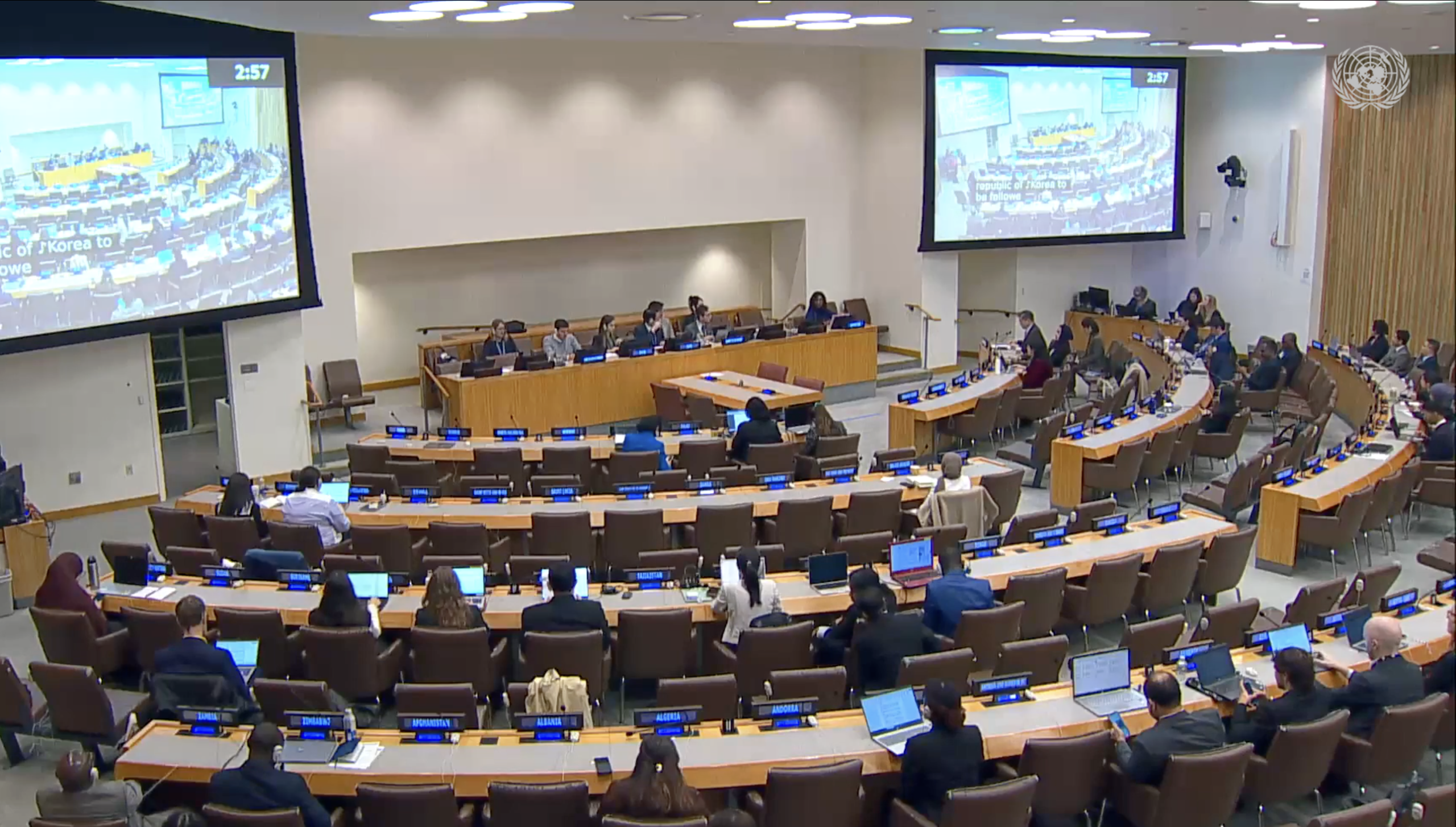©UN Web TV

UN80: Treaty Bodies urge solution to ongoing UN liquidity crisis lest mandates become unsustainable
In their interactive dialogues with the General Assembly’s Third Committee, treaty body chairs focused on critical obstacles preventing mandate fulfilment, including severely strained or non-existent financial and human resources leading to significant case backlogs.
Throughout the 80th session of the General Assembly’s Third Committee, chairs of the ten human rights treaty bodies echoed overlapping concerns around the United Nations’ ongoing liquidity crisis and the threat it poses to the UN human rights system.
Though these mandates arise from areas of urgent need and attention, chairpersons stressed that their mere existence is insufficient in addressing the global problems to which they were created to respond. In the words of the Chair of the Human Rights Committee (CCPR), Dr. Changrok Soh, ‘treaty bodies are a cornerstone of the international human rights protection system.’ It is therefore essential to ‘[ensure] that the treaties are not merely ratified and forgotten, but are actually implemented.’
Treaty body chairs shared the ways they have had to maximise, restructure, and rearrange funds, resulting in and reflected by substantial cuts in programming. CCPR Chair Soh, the Chair of the Committee on Migrant Workers (CMW) Fatimata Diallo, the Chair of the Committee on the Rights of the Child (CRC), and the Chair of the Committee on Economic, Social, and Cultural Rights (CESCR) Preeti Saran all mentioned the system-wide loss of 30% of total meeting time, which has resulted in the postponement of 39 State party reviews and decisions on 185 individual communications.
Similarly, María Luisa Romero and Claude Heller, Chair of the Subcommittee on Prevention of Torture (OPCAT) and Chair of the Committee against Torture (CAT) respectively, stated that budget constraints led to cancellation of visits and reduced capacity to prevent torture through in-country monitoring.
Overall, CCPR Chair Soh reported that half of the country visits of those committees with visiting mandates had been postponed. Several chairpersons also highlighted the impact of the liquidity crisis on staffing and hiring freezes, including those of CESCR, the Committee on the Elimination of Racial Discrimination (CERD), and the Committee on the Elimination of Discrimination against Women (CEDAW).
Likewise, the Chair of the Committee on Enforced Disappearances (CED), Juan Pablo Albán Alencastro, reported on joint concerns chairs expressed in a recent meeting, lamenting that the liquidity crisis has led to significant cancellation or reduction of meetings, delayed or cancelled country visits, and the accumulation of individual communications and pending reports.
Elaborating on the impacts of system-wide budget cuts, CESCR Chair Saran warned that ‘the constraints we are facing are deeply worrisome’, adding that ‘if the situation does not improve, we feel that the effects of the damage caused will endure for considerable time’. The liquidity crisis has stymied CESCR’s work this year, as the committee’s regular pre-sessional working groups on individual communications were not convened, which forced them to carve out time from the session meeting. CESCR has furthermore been without a Committee Secretary since June.
The Chair of the Committee on the Rights of Persons with Disabilities (CRPD), Miyeon Kim, further contextualised these concerns, reminding State parties that accessibility is not a privilege, but a human right. She further stated that her office was forced to reduce time from 20 meeting days to 12, and that the committee has not been able to review all scheduled reports. In addition, more than 30 State parties have yet to undergo their first review, contributing to a backlog of 54 reports representing a delay of nearly five years.
Several chairpersons urged States not to normalise these profound shortcomings, ‘because human rights cannot depend on financial inconvenience’.
Discussing access but also the purpose and importance of these mandates generally, Miyeon Kim stated that ‘these decisions contradict the Secretary-General’s inclusion strategy and undermine the principle of accessibility that the United Nations itself must uphold’. ‘True inclusion must begin with the UN so that it may credibly lead by example,’ she concluded.
Despite severe cuts in meeting time, staffing freezes, and cancellation of entire sessions, several treaty bodies continued to deliver substantive outputs that demonstrate their irreplaceable role in the human rights system. For example, in addition to reviewing State reports, adopting lists of issues, and advancing individual communications, the CRPD shared that it continued drafting two new General Comments even though its meeting time was almost halved and accessibility services were removed from the UN budget. The Human Rights Committee shared that it adopted over 50 decisions on individual communications and initiated work on a new General Comment despite losing an entire fall session.
The treaty body system collectively still adopted views on hundreds of cases even after losing 30% of its total meeting time. Delivered under significant strain, these underscore that treaty bodies remain the backbone of accountability, standard-setting, and protection within the UN human rights system, and that without stable and adequate funding, core human rights obligations risk becoming impossible to uphold.
ISHR urges all States to recall and reaffirm the formula contained in General Assembly resolution 68/268, and to allocate the corresponding financial and human resources in the Fifth Committee that the treaty bodies require to get their work off the ground and pursue their mandates as envisioned.
